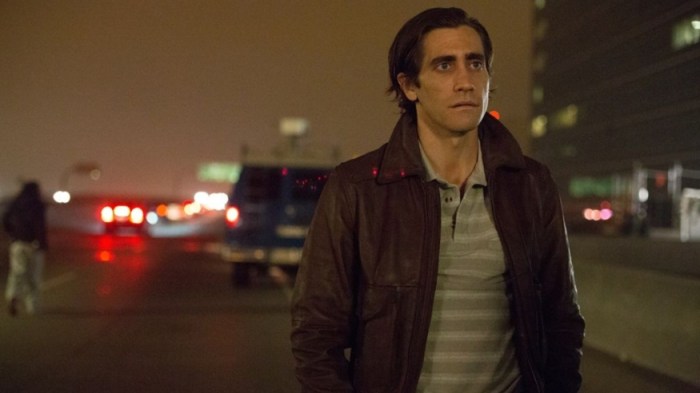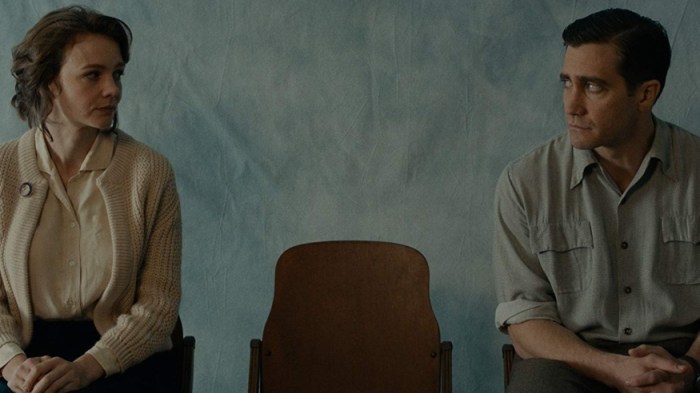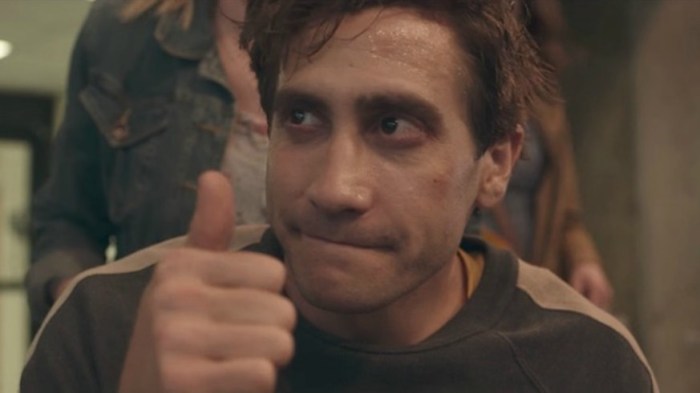‘Okja’
Director: Bong Joon-ho
Stars: Ahn Seo-hyun, Tilda Swinton
Rating: R
3 (out of 5) Globes
The surrealists used to play a fun game: They’d go see one movie, leave after a reel or two, sneak into another one that was already in progress, repeat, repeat, repeat. They embraced the confusion, welcomed it, feeling like they’d created their own nonsensical narrative out of spare parts. Sometimes “Okja” feels like one of these surrealist experiments. It’s a mess — a Spielbergian heartwarmer that’s also an action movie that’s also an activist screed that takes on not only capitalism but also animal rights.
But it does all add up. It’s a more ramshackle film than we’re used to from its director, Bong Joon-ho, of “Snowpiercer” and “The Host,” whose films are already plenty ramshackle, at least by Hollywood standards. Bong likes to mix up tones that wouldn’t normally go together. “The Host,” his monster movie, contains real chills and broad comedy. “Snowpiercer” was almost even recut for its American release after Harvey Weinstein found it a bit much, thought he could pound it into more acceptable shape. (Luckily, he lost.) The even more out-there “Okja” was funded by Netflix, who gave Bong carte blanche to do whatever. “Whatever” is what he did, but there’s a method to the madness. If you sort through it, you can see the mess as complexity. “Okja” may convince you to go vegetarian, but its message is a whole lot more disturbing than “meat is murder.”
The whiplash begins right away: Tilda Swinton — in full nutcase mode, complete with broad American accent and blindingly bright braces — plays Lucy Mirando, CEO of one of those corporations with more arms than a hundred octopi. She delivers a sarcastically-penned speech about creating a super-sized pig to solve world hunger. (Think the animal that wants to be eaten from “The Restaurant at the End of the Universe,” only minus the part where it wants to be eaten.)
Jump several years and we’re suddenly in a much sweeter film. One of these super-piglets, raised on a farm in far-flung South Korea, is all grown-up and very huge. She’s called Okja, so named by her longtime bestie, Mija (Ahn Seo-hyun). Alas, Mija is sadly oblivious to the fact that Okja and her kind were only bred to be one day harvested for steaks and giant beef jerky sticks and other assorted meat-stuffs, lining the pockets of a company looking to turn tragedy into profit.
These scenes shouldn’t go together, but it doesn’t feel incompetently jarring. It really does feel like one movie invading another. “Okja” wishes it could be a cute movie about a little girl and her hippopotamus-sized animal friend. Once the corporation comes to collect their product, we feel as lost and irate as Mija, who goes after her, trotting the globe, running afoul of corporate goons and brilliant but bumbling animal rights activists alike. The plot sometimes feels like a round of Exquisite Corpse, only played by the same writers (Bong and journalist Jon Ronson, who wrote the chilling social media expose “You Have Been Publically Shamed”). The film keeps shape-shifting, giving us a thrilling, Spielbergian chase through downtown Seoul, a Lower Manhattan parade gone hilariously/violently awry, even a devastating trip to a super-pig slaughter house that will haunt the nightmares of any and all carnivores.
Stick with it, though. That shouldn’t be hard; Bong makes going along with him a blast. He can pull off wild tonal shifts and unexpected plot twists that feel genuine, not simply there to get a rise. His portrayal of the activists is fascinating: At first they’re super-heroic badasses. When they steal Okja from the corporate fuzz, they come off like the kind of first-rate robbers you only see in movies. But they’re also wimpy pacifists. They tell their prey they don’t hurt people. There’s even a joke about one member who’s so committed to the cause he doesn’t even eat fish. He’s so malnourished his cohorts have to hold him up when he nearly passes out. They can also be scary, or at least their leader, a laser-focused Paul Dano, is. He’s no pacifist, and one scene has him ruthlessly beating a member he perceives as a turncoat. We don’t know whether they’re heroes or jokes or perhaps even evil.
The answer is they’re all of the above. That makes “Okja” more than a mere anti-carnivore tract (even though Bong himself did briefly become a vegan, though only after making the film). If it sides with anyone, it’s Mija, who belongs to no group, whose only interest is getting Okja back and returning to far-flung South Korea. We learn what she learns: That the real villain isn’t meat-eaters or even corporation goons like Swinton’s Lucy Mirando. It’s not even Lucy’s even more sinister sister, also played by Swinton. It’s, as they say, the system.
But “Okja” doesn’t stop there. It knows that “the system” only survives because we all contribute to its existence and proliferation. It paints a bleak portrait of globalism — how surviving in a world run by profit requires ignoring one’s complicity in it. Even those in in far-off lands, like a little girl in Nowhere, South Korea, are forced to turn a blind eye to the horrors upon which everything is built. Wild and reckless as “Okja” can get — and we haven’t even mentioned Jake Gyllenhaal, of all people, bouncing around like a children’s TV host with a Groucho Marx mustache and high-pitched “tee-hee”s, in a performance that’s either inspired or misconceived (or both!) — it’s controlled in the way that counts. Follow it down its labyrinthine path, and you’ll come out realizing we all contribute to the world’s ills. And you’ll have a blast doing it, too.
Follow Matt Prigge on Twitter @mattprigge















